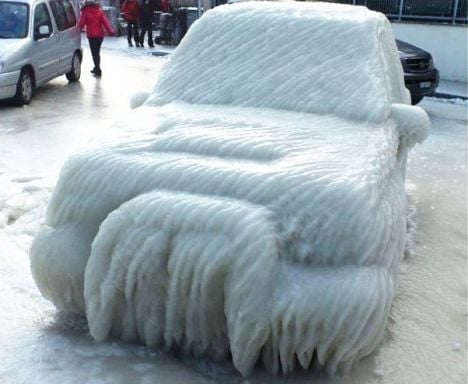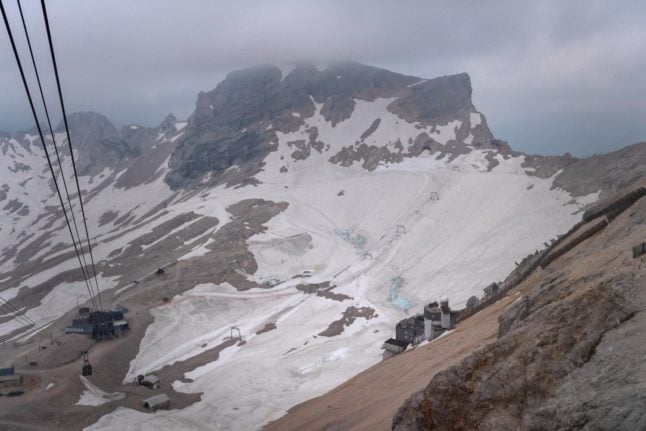The Touring Club of Switzerland (TCS), the Swiss auto rescue service, has received between six and eight times its usual number of calls. The company has laid on about 200 additional patrols to help cope with the extreme conditions, Stefan Müller, spokesman for TCS told newspaper Tages Anzeiger.
The majority of calls concerned aged batteries, although many others concerned frozen locks on doors. Several vehicles have been entirely covered in ice, with one picture of a Geneva vehicle sporting an ice moustache going viral on the internet.
Diesel also caused problems, clogging fuel lines and filters, because of the wax secreted by the fuel at very cold temperatures. The solution for most of these cars was simply to be towed to garages and to be left to warm up a little.
Ice has particularly taken hold in and around the Geneva area. Boats on the lake are being whipped by the cold winds, with ice forming as the water sprays upwards onto the decks. Two boats have already sunk from the sheer weight of the ice.
Although ice has been forming in the German-speaking areas too, the density is not yet sufficient to allow safe skating on many of the lakes, the police warned on Tuesday.



 Please whitelist us to continue reading.
Please whitelist us to continue reading.
Member comments